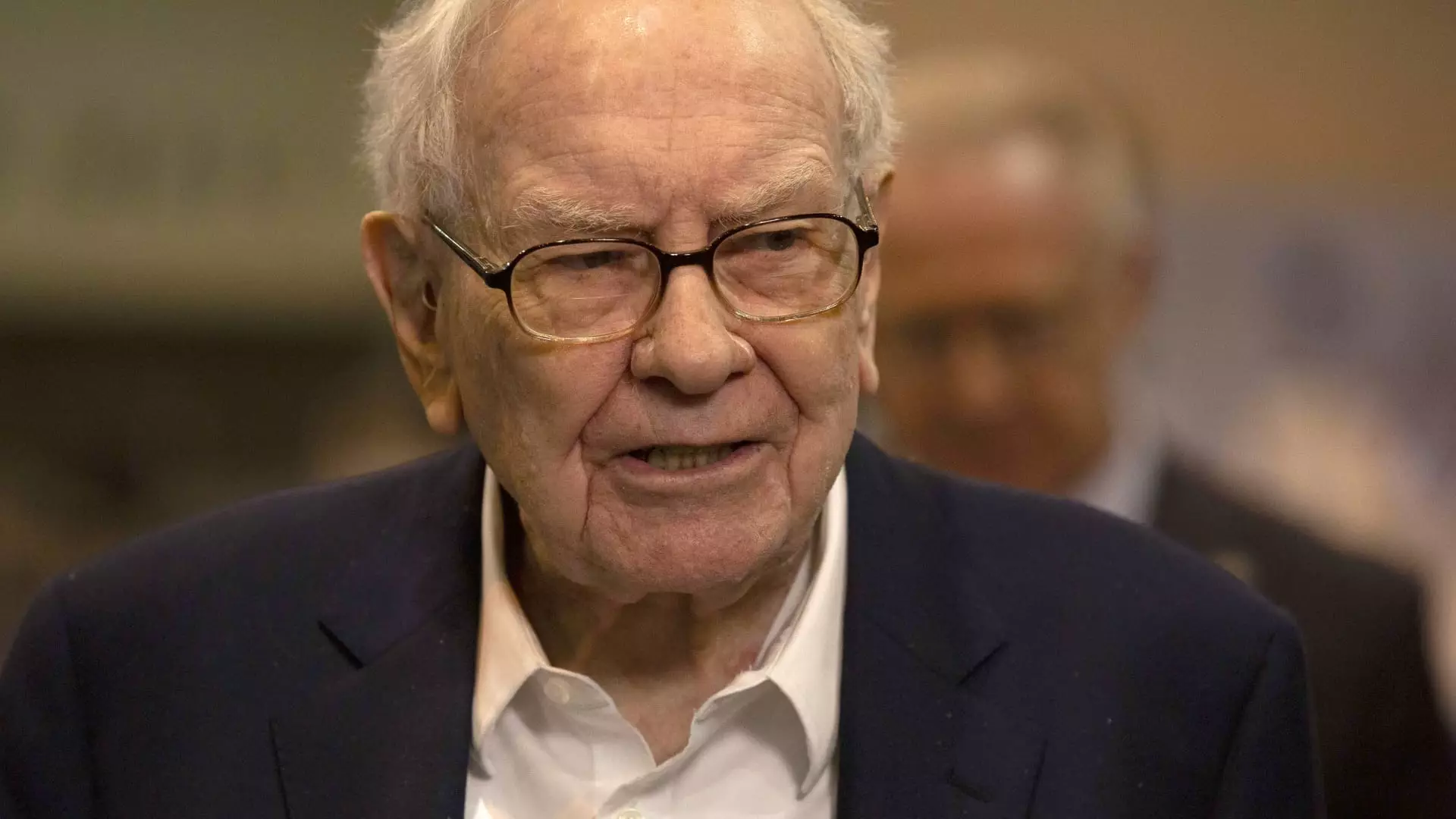Berkshire Hathaway, the renowned conglomerate led by investment luminary Warren Buffett, has reached a significant milestone in its financial journey. As of the third quarter of 2023, the company’s cash reserves exceeded $325 billion, a dramatic increase from the $276.9 billion reported just a quarter earlier. This staggering figure indicates a strategic shift in Buffett’s investment approach, as he opts to liquidate significant equity holdings rather than reinvest in the company’s stock. By discerningly managing his portfolio, Buffett’s actions have drawn attention to the underlying implications regarding market trends and economic forecasts.
One of the most striking aspects of Berkshire’s recent financial activity is Buffet’s decision to divest substantial portions of noteworthy equity positions. Notably, the company sold approximately a quarter of its extensive stake in Apple, marking the fourth consecutive quarter of a sell-down. Similarly, Berkshire Hathaway offloaded significant portions of its long-term investment in Bank of America, generating over $10 billion in returns since mid-July. Collectively, Berkshire’s stock sales amounted to approximately $36.1 billion in the third quarter alone, showcasing a preference for cash liquidity over immediate investment returns.
The rationale behind this stock liquidation can be interpreted through a more comprehensive lens. As the financial landscape experiences uncertainty due to fluctuating interest rates and growing fiscal deficits, Buffett’s selling spree appears to reflect a cautious optimism. The potential for capital gains tax increases looms on the horizon, offering Buffett a preemptive strategy to reposition Berkshire’s assets favorably before any potential tax reforms take effect.
In a further delineation of Buffett’s strategic pivot, Berkshire Hathaway refrained from repurchasing any of its shares during this period. This inactivity stands in stark contrast to previous years when the company actively executed share buybacks as part of its financial strategy. Earlier in the year, a marked decline in repurchase activity was evident, with only $345 million spent so far, a significant drop from the $2 billion repurchased in each of the previous two quarters.
Berkshire’s share buyback policy is predicated on the belief that stock can be purchased below its intrinsic value, thus providing a form of value investing in itself. The current scenario suggests that as Berkshire Hathaway’s share prices reached record highs, Buffett might have considered them overvalued relative to the company’s intrinsic worth, reinforcing his decision to retain cash reserves instead.
Despite the concerning trends in stock sales and share repurchases, Berkshire Hathaway’s operational performance remains robust. For the third quarter, the conglomerate reported operating earnings of $10.1 billion, although this reflects a slight decline of 6% from the previous year due to unfavorable conditions in insurance underwriting. This earnings figure fell short of analyst expectations, indicating potential challenges in specific sectors of Berkshire’s diversified operations.
Moreover, while the stock market has generally posted positive returns—with Berkshire’s shares climbing 25% year-to-date, surpassing the S&P 500’s 20.1%—the prevailing economic conditions fueled by rising interest rates may raise questions about future performance. The 10-year Treasury yield’s surge above 4% presents potential headwinds, further complicating investment strategies for the conglomerate.
Buffett’s current trading patterns are not isolated phenomena; they resonate within a larger economic context characterized by volatile markets and growing fiscal concerns. Key investors, such as Paul Tudor Jones, have expressed alarm regarding ballooning deficits and the lack of commitment from political candidates to enact measures addressing governmental spending. This economic backdrop underscores Buffett’s cautious posture.
As inflationary pressures persist and interest rates fluctuate, Buffett’s liquidation strategy may serve as a buffer against unpredictable market dynamics. The foresight of a growing fiscal deficit incentivizes Buffett to maintain a larger cash reserve, equipping Berkshire Hathaway to navigate potential financial turbulence in the coming quarters.
Berkshire Hathaway’s unprecedented cash accumulation, coupled with a strategic divestment of equities, reflects a calculated risk management approach by Warren Buffett amidst evolving market conditions. The lack of share repurchases further illustrates Buffett’s prioritization of liquidity, poised against potential economic uncertainties. As investment landscapes transform, Buffett’s adept maneuvering through stock sales, while preserving a formidable cash position, continues to solidify his legacy as one of the preeminent investors of our time.


Leave a Reply